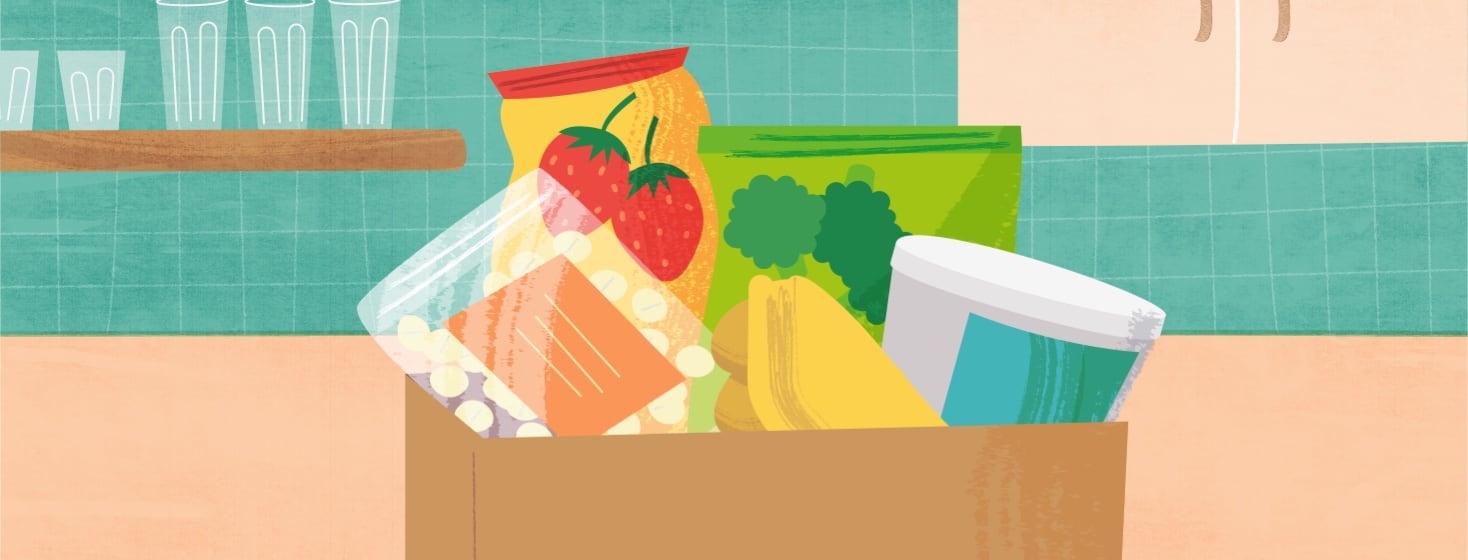Asking For Help With SMA: Grocery Shopping
Living with spinal muscular atrophy (SMA) Type 2 means navigating a world where asking for help is a constant necessity. My body simply cannot do everything I want it to, so I rely on others for assistance with countless tasks, from brushing my teeth to picking out groceries. The list of things I need help with feels endless. Yet, the experience of asking for help varies; it’s easy some days and challenging on others.
Having my mom help me with groceries
Take grocery shopping, for example. For many people, running to the store might feel like an inconvenience: a chore that interrupts their busy schedules. For me, though, it’s a full-day event that requires planning, patience, and plenty of assistance. My goal is always to shop early and avoid crowds, but SMA moves me at its own pace. By the time I get up, ready, and out the door, it’s often mid-afternoon. And that’s okay; SMA teaches you to embrace a slower, more deliberate rhythm.
When I finally arrive at the store, my mom, who’s also my caregiver, helps me navigate the aisles, retrieving items from shelves or freezer sections. While I’m grateful for her help, I sometimes wish I could do it all myself. There’s a certain simplicity in spotting an item on a shelf and grabbing it instantly.
For me, it’s a multi-step process: I need to describe the exact location, relay directions like “one shelf up, three items over,” and then wait as someone else retrieves it. While it probably takes just a few minutes, the inability to act independently makes it feel much longer.
Asking strangers for help
These moments remind me how easy it is to take small tasks, like grocery shopping, for granted. Many people never stop to think about how effortlessly they can pick out their favorite snacks, choose the perfect apples, or load up their cart. For me, even the act of checking out at the register requires assistance.
Some days, I’m outgoing and confident about asking strangers for help when my mom is busy with her own shopping. On those days, I feel empowered to ask someone to grab an item from a high shelf or lift something heavy into the cart. Other days, though, the idea of speaking up feels overwhelming. I don’t want to inconvenience anyone or draw extra attention to myself. On those days, grocery shopping feels like a bigger challenge.
Using delivery services
To make the process easier, I’ve embraced grocery delivery services like Walmart+ and Instacart. These platforms are game-changers for people with disabilities, offering independence and control over shopping. During the COVID-19 pandemic, these services became widely popular, allowing people to shop safely from home. For individuals like me, they remain invaluable tools.
Instead of braving the cold in winter or navigating crowded aisles, I can sit in the comfort of my home and personally select every item on my list. Once I’ve checked out, someone else does the hard part: picking up my groceries and delivering them right to my door.
These services have shifted my relationship with grocery shopping. They give me the freedom to make my own choices and eliminate the physical barriers that make in-store shopping so exhausting. It’s empowering to know I can handle this task independently, even if I need help in other areas of my life. The only pitfalls with using these services and apps is sometimes they can be pricey!
Getting creative helps
Living with SMA means finding creative ways to navigate daily challenges. Asking for help will always be a part of my life, but tools like grocery delivery apps remind me that independence comes in many forms. By leaning into these resources, I’ve discovered new ways to simplify my routine while still honoring my desire for autonomy. And while asking for help can sometimes feel cumbersome, it’s also a reminder of the kindness and support that exists around us, even in the aisles of a grocery store.

Join the conversation